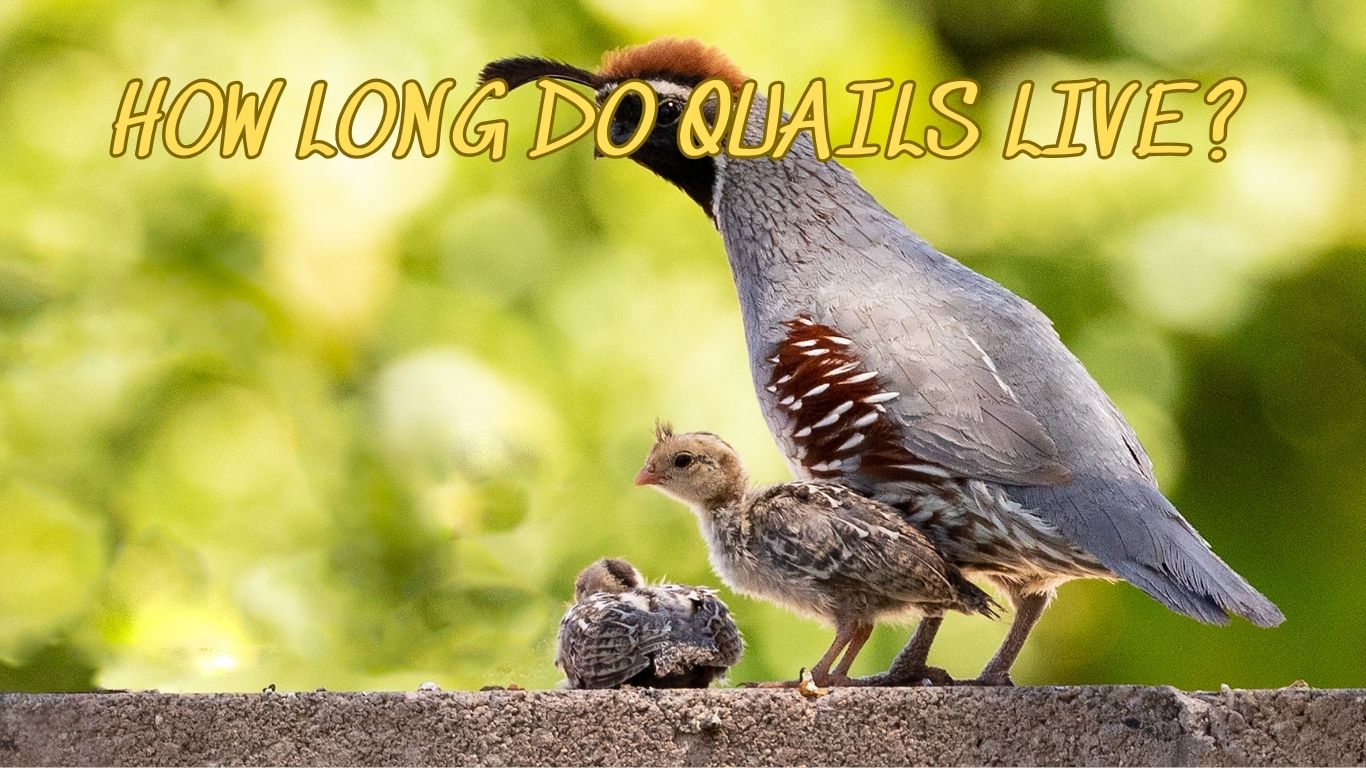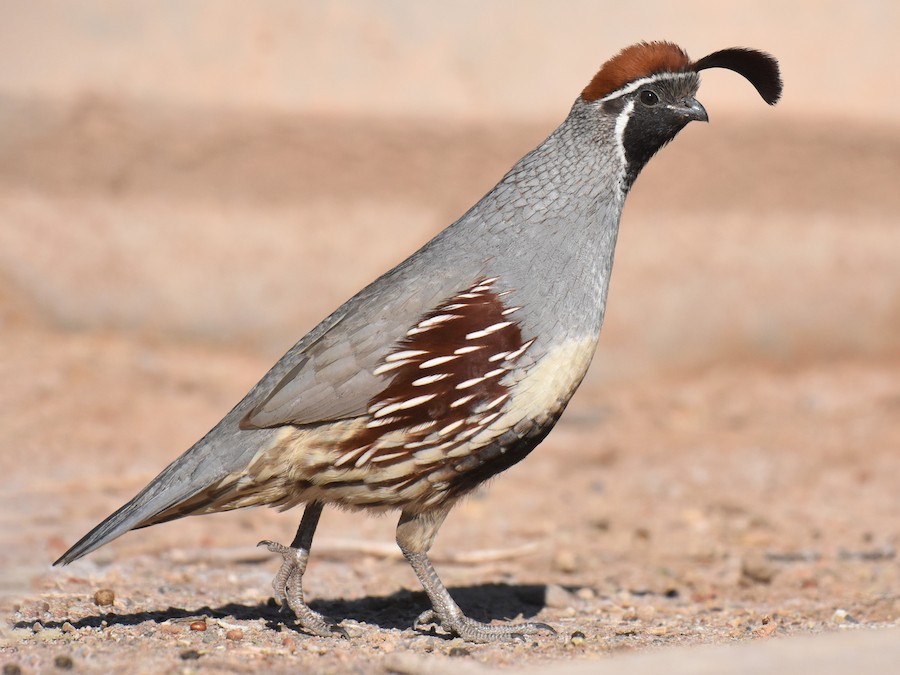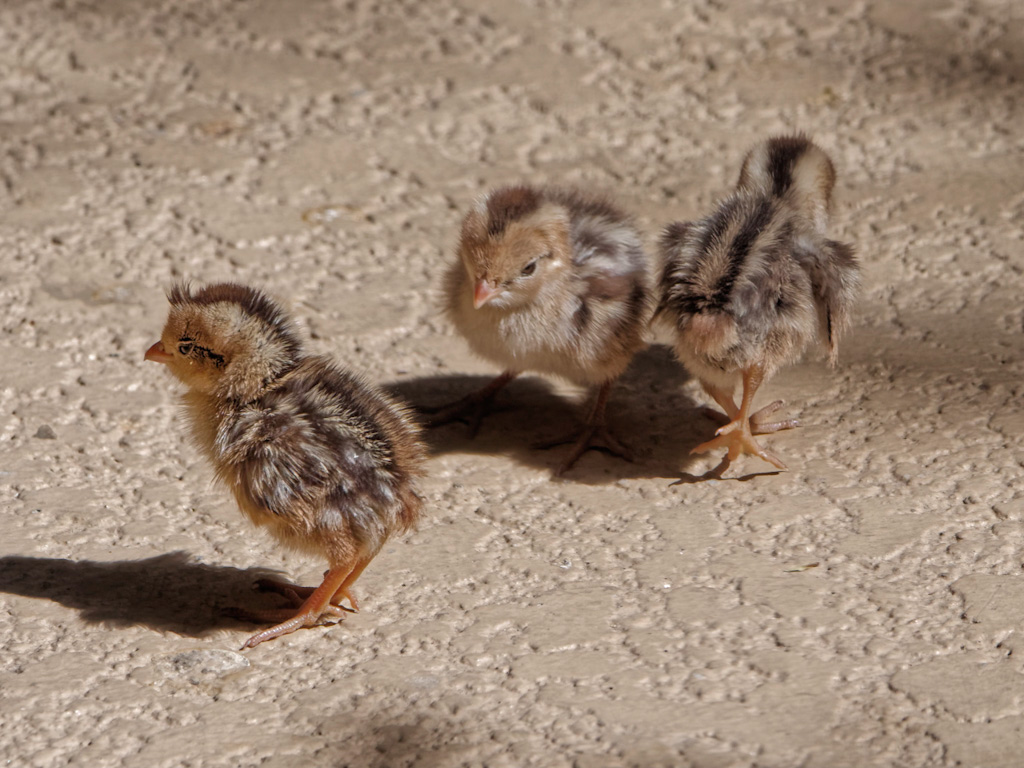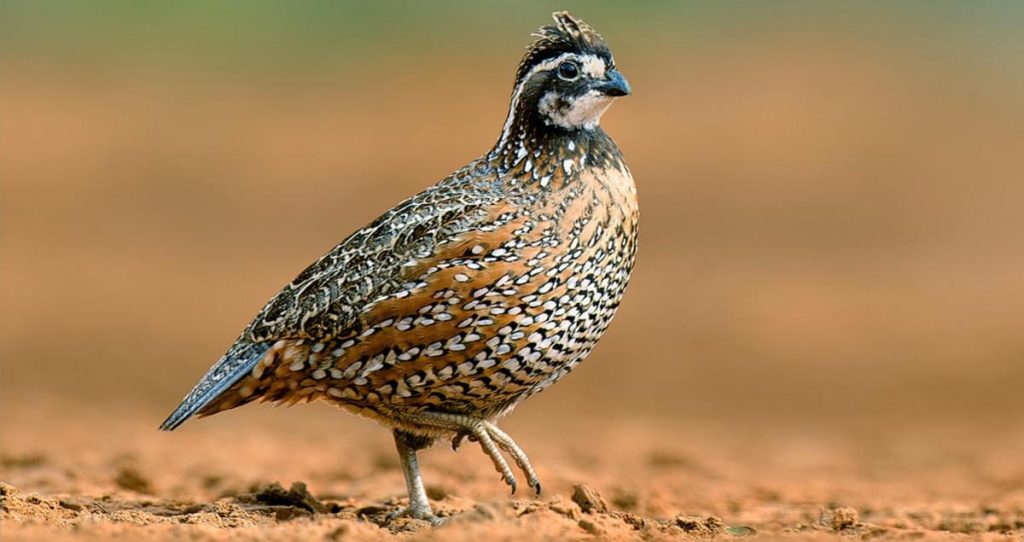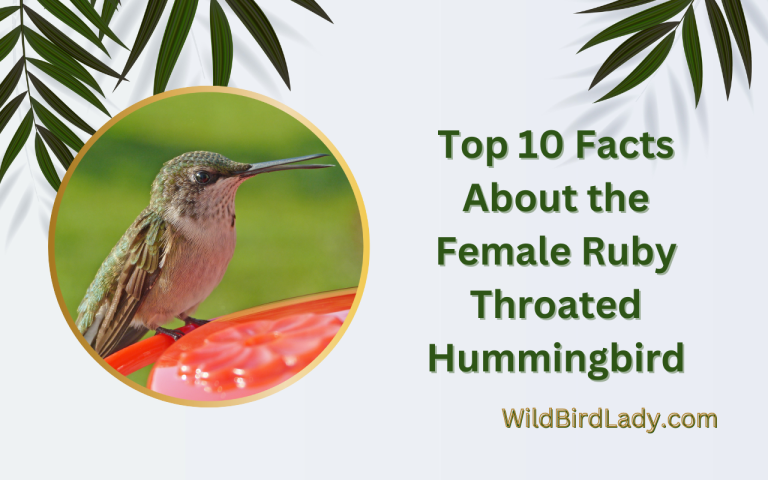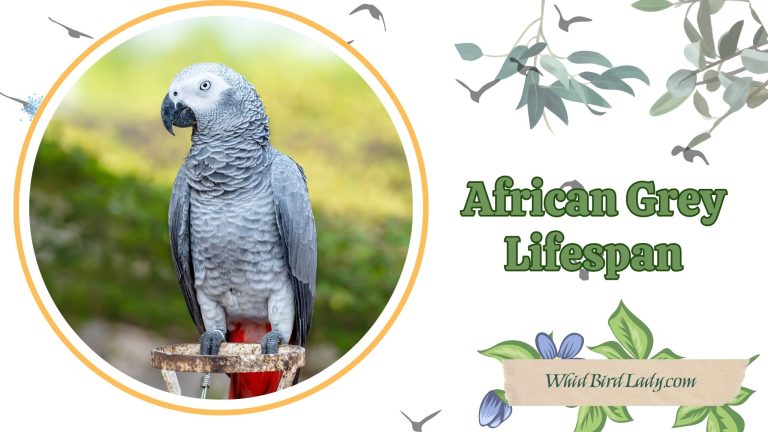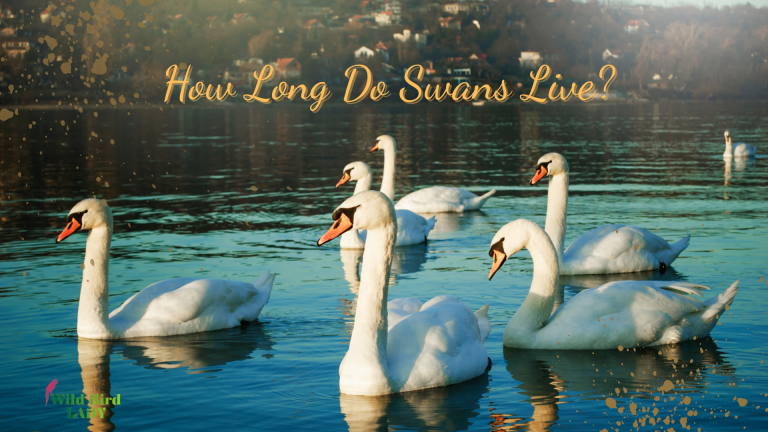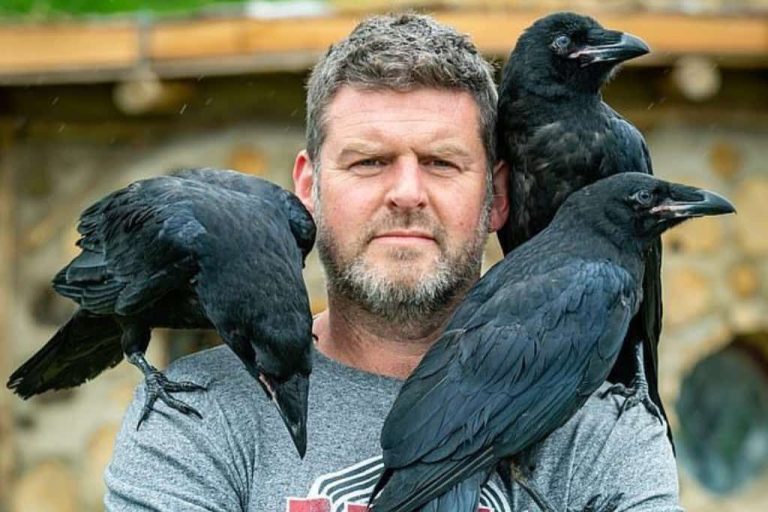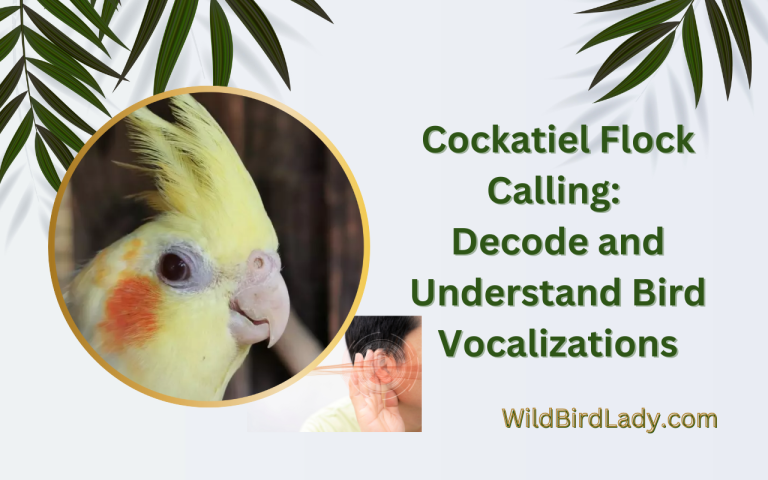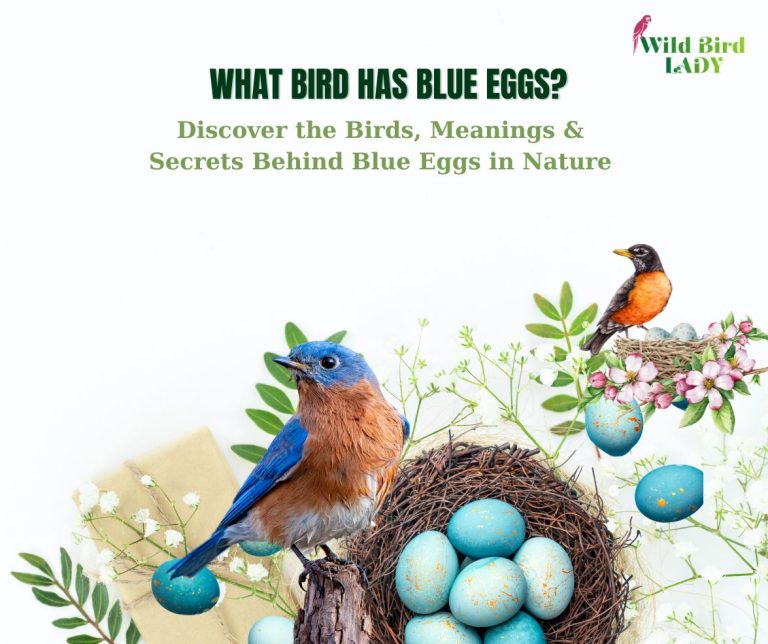How Long Do Quails Live? Tips to Help Them Live Longer and Healthier Lives
By Rifat Ahmed – Birdwatching Expert with 13 Years of Experience
As someone who has spent over a decade watching quails flutter through grasslands and woodland edges, I’ve often been asked: how long do quails live? Whether you’re a backyard bird lover, aspiring quail breeder, or a curious nature enthusiast, understanding the quail lifespan is essential for both admiration and care.
In this article, we’ll take a deep dive into the lifespan of quails in the wild and captivity, explore the factors that influence how long quails live, and offer expert-backed tips on how to help them live healthier, longer lives.
Quick Answer: How Long Do Quails Live?
On average:
- Wild quails live 1.5 to 3 years, due to high predation and environmental challenges.
- Captive quails can live 4 to 6 years, with proper care and protection.
- Some domesticated quails have been known to live up to 8 years, though this is rare.
But the true story of a quail’s lifespan is more complex—and fascinating.
Species Spotlight: Lifespan by Quail Type
Not all quails are created equal. Here’s how long the most common quail species live:
| Quail Species | Wild Lifespan | Captive Lifespan |
|---|---|---|
| Northern Bobwhite | 1–2 years | 4–5 years |
| Japanese (Coturnix) | 2–3 years | 5–6 years |
| California Quail | 1.5–3 years | 4–6 years |
| Button Quail | 3–4 years | 5–7 years |
| Gambel’s Quail | 1.5–3 years | 5–6 years |
According to the Cornell Lab of Ornithology, the Northern Bobwhite—one of the most studied quails—has a life expectancy of around 6 months in the wild, largely due to high predation of chicks and juveniles.
Why Do Wild Quails Have Such Short Lives?
1. High Predation
From foxes and snakes to hawks and even domestic cats, quails face a barrage of predators. Their small size and ground-dwelling habits make them easy targets.
“More than 80% of quail chicks don’t survive their first year,” according to a 2022 study by the Wildlife Society Bulletin.
2. Harsh Weather and Habitat Loss
Unpredictable weather, droughts, and habitat destruction (especially due to agriculture and urbanization) reduce access to food and shelter.
3. Hunting Pressure
In regions where quail hunting is popular, populations are heavily reduced during hunting seasons.
How Long Do Quails Live in Captivity?
Quails raised in captivity enjoy better protection from predators, consistent food supply, medical care, and shelter. This allows them to reach their full lifespan potential, often living 4 to 6 years or more.
I’ve seen several of my breeder friends raise Coturnix quails to the age of 7 or even 8—remarkable longevity compared to their wild cousins.
Domesticated Quail Lifespan Boosters:
- No natural predators
- Controlled diet
- Clean, dry shelter
- Reduced stress
- Veterinary support
Life Stages of a Quail
Understanding the life stages of a quail is key to improving their chances of survival.
1. Hatchling (0–1 week)
- Tiny and fragile
- Needs warmth and protection
- Highly vulnerable to injury and cold
2. Chick (1–4 weeks)
- Starts to grow feathers
- Learns to eat on its own
- Still needs heat and safe housing
3. Juvenile (4–8 weeks)
- Fully feathered
- Begins to show adult behavior
- Requires more space and stimulation
4. Adult (8+ weeks)
- Reaches sexual maturity
- Begins breeding and egg-laying
- Active for most of their lifespan
Top 7 Factors That Affect Quail Lifespan
As a longtime birdwatcher and small-scale quail enthusiast, I’ve seen firsthand how certain conditions can dramatically influence how long quails live—especially when comparing wild populations to those raised in captivity. While genetics play a role, it’s the environment and care they receive that truly make the difference.
Let’s explore the top 7 factors that directly impact quail lifespan, based on years of observation and reputable sources like the Cornell Lab of Ornithology.
1. Predator Protection
In the wild, predators are the #1 reason most quails don’t make it past their first year. Foxes, hawks, owls, snakes, raccoons, and even domestic cats see quails as easy prey due to their small size and ground-nesting behavior.
According to the Wildlife Society Bulletin, more than 80% of Northern Bobwhite chicks are lost to predators before reaching adulthood.
In captivity, the story changes. When properly housed, quails can live 4–6 years or more, simply because they’re no longer under constant threat. For those raising quails, predator-proofing should be your top priority. Use:
- Hardware cloth with ½ inch mesh
- Secure latches on all access points
- Underground barriers to prevent digging predators
- Covered runs to block aerial threats
I once lost an entire clutch of Coturnix quails to a stray ferret that slipped through a poorly secured vent. Since then, I’ve doubled down on enclosure security—and haven’t lost a bird since.
2. Nutrition
Just like us, quails need the right nutrients to stay healthy and thrive. A poor diet can shorten their lifespan dramatically, leading to weak immune systems, reduced egg production, and early mortality.
A high-quality quail diet should include:
- 20–24% protein during early growth and egg-laying
- A base of game bird feed or finely ground poultry starter
- Fresh greens (like kale, spinach, dandelion)
- Occasional fruits (like apple slices or berries)
- Calcium supplements, such as crushed oyster shells or cuttlebone, especially for laying hens
Avoid feeding them:
- Avocado (toxic to birds)
- Caffeinated products
- Moldy or spoiled food
- Processed human snacks
A nutritionally balanced quail will grow faster, lay more eggs, and resist disease better—all contributing to a longer, healthier life.
3. Clean Environment
Cleanliness isn’t just for aesthetics—it’s life or death for quails. These birds are highly sensitive to unsanitary conditions, especially when housed in enclosed or small spaces.
Dirty bedding and stagnant water can lead to:
- Respiratory infections
- Coccidiosis, a deadly parasitic disease
- Mites and lice infestations
- Ammonia buildup from droppings
To keep quails healthy:
- Replace bedding weekly (pine shavings or straw work well)
- Wash feeders and waterers every few days
- Ensure proper ventilation without creating drafts
- Use dust baths with diatomaceous earth or clean sand to deter parasites
I recommend doing a deep clean of the entire coop or pen at least once a month. Your birds—and your nose—will thank you.
4. Genetics
While care and environment matter most, genetics also play a critical role in how long quails live. Some quail breeds, particularly those selectively bred in captivity, have been optimized for:
- Longer lifespan
- Greater disease resistance
- Improved egg-laying capacity
For example, Coturnix (Japanese quails) are known for their hardiness and rapid development. They typically live longer than wild-type species when raised in similar conditions.
If you’re breeding quails, avoid inbreeding and select for healthy, active individuals with no visible deformities. Strong genetics provide a solid foundation for a long life—but they still need proper care to reach their full potential.
5. Stress Levels
Stress is a silent killer in birds, and quails are no exception. Prolonged stress weakens the immune system, disrupts sleep and digestion, and leads to aggressive behavior or feather plucking.
Common stress triggers for quails include:
- Overcrowding
- Excessive handling
- Lack of hiding spaces
- Sudden changes in lighting, noise, or temperature
- Being housed with aggressive birds or multiple males
To reduce stress:
- Provide at least 1 square foot per bird
- Limit handling unless necessary
- Offer low cover or hiding boxes to help them feel safe
- Minimize exposure to loud noises, pets, or foot traffic
A calm, secure quail is a long-lived quail. I’ve seen entire flocks deteriorate health-wise simply due to poorly managed stress factors—so don’t underestimate this one.
6. Veterinary Care
Although many quail keepers don’t think to bring their birds to a vet, routine health checks can make a big difference—especially for valuable breeding stock or beloved pets.
Captive quails benefit from:
- Parasite control (both internal and external)
- Vitamin and mineral supplements, especially D3 and calcium
- Treatment for respiratory infections, egg binding, and leg deformities
- Trimming overgrown beaks or nails
If avian vets are hard to find in your area, learn to recognize early signs of illness:
- Lethargy
- Fluffed-up feathers
- Labored breathing
- Diarrhea
- Loss of appetite
The sooner you act, the better their chance of recovery—and a longer life.
7. Weather Exposure
Quails can tolerate a range of temperatures, but extreme heat and cold drastically reduce survival rates, especially in young or elderly birds.
- In winter, frostbite and hypothermia are major concerns. Provide:
- Heated shelters or heat lamps (used cautiously to avoid fire risk)
- Deep bedding for insulation
- Windbreaks to block drafts
- In summer, heatstroke is more common than most people think. Offer:
- Shade cloth or tree cover
- Frozen water bottles in the coop
- Electrolyte supplements during heatwaves
Where I live, temperatures can swing from freezing to 100°F. The difference in lifespan between protected and unprotected quail flocks during these times is enormous.
How to Help Quails Live Longer and Healthier Lives
Here’s what I’ve learned over 13+ years of observing and assisting quail owners:
1. Provide a Safe and Spacious Habitat
Whether you’re raising quail indoors or outdoors, make sure their enclosure:
- Is predator-proof (use wire mesh no wider than ½ inch)
- Has solid flooring to prevent burrowing predators
- Offers plenty of space (at least 1 square foot per bird)
2. Feed Them a Balanced Diet
A healthy quail diet should include:
- High-protein game bird feed (20–24% protein)
- Leafy greens and safe fruits (like spinach and apples)
- Grit and crushed oyster shells for digestion and calcium
Avoid feeding:
- Avocado
- Chocolate
- Salty or processed foods
3. Keep Their Enclosure Clean
- Replace bedding weekly
- Use pine shavings or straw
- Disinfect feeders and waterers regularly
4. Minimize Stress
- Handle quails gently and only when necessary
- Avoid loud noises and sudden changes in environment
- Give them hiding spots and low branches for comfort
5. Monitor for Common Health Issues
Watch for:
- Sneezing or nasal discharge (respiratory infections)
- Lethargy and feather loss (parasites or malnutrition)
- Limping or curled toes (vitamin deficiencies)
Consult an avian vet if symptoms persist.
6. Protect Against Weather Extremes
- Provide heating lamps in winter
- Use shade and ventilation in summer
- Always offer fresh, clean water
7. Allow Dust Baths
Quails love dust bathing to stay clean and parasite-free. Offer a shallow tray of dry soil or sand in their enclosure.
Do Male or Female Quails Live Longer?
Generally, females have a slightly shorter lifespan, especially in captivity, because of the physical toll of frequent egg-laying. However, both sexes can live equally long with proper care.
Can You Keep Quails as Pets?
Absolutely. In fact, Coturnix quails are among the most popular quail species kept for eggs and companionship. They’re quiet, low-maintenance, and make great pets for small spaces.
But remember:
- They need companionship—never keep just one
- A group of 3–5 is ideal
- Males may become aggressive, so a female-heavy group works best
Conservation Note: Wild Quail Declines
Sadly, wild quail populations—especially the Northern Bobwhite—are declining across North America. According to the North American Breeding Bird Survey, bobwhite numbers have dropped by over 80% since the 1960s due to:
- Habitat destruction
- Pesticide use
- Fire suppression
- Urban sprawl
Organizations like Quail Forever and state wildlife agencies are working hard to restore habitats and support quail recovery.
Final Thoughts from the Field
So, how long do quails live? The answer depends on species, environment, and care. In the wild, they face short and perilous lives. But in captivity, with the right attention, they can thrive well into their golden years.
As someone who has watched generations of quails come and go, I can tell you: every extra day a quail lives in health and safety is a little miracle of nature.
If you’re raising quails or considering it, remember this: the better care you give them, the longer and more rewarding their lives will be.
Read also: Can Quails Fly? The Truth About These Ground-Dwelling Birds
FAQs: Quail Lifespan
Q: How long do quails live as pets?
A: Pet quails typically live 4–6 years with proper care, diet, and housing.
Q: How long do quail live in the wild?
A: Most wild quails live 1.5 to 3 years, though many don’t survive their first year due to predation.
Q: What’s the longest a quail has lived?
A: In captivity, some Japanese quails have reportedly lived up to 8 years.
Q: Can diet really affect quail lifespan?
A: Yes! A balanced, high-protein diet is crucial for longevity and reproductive health.

